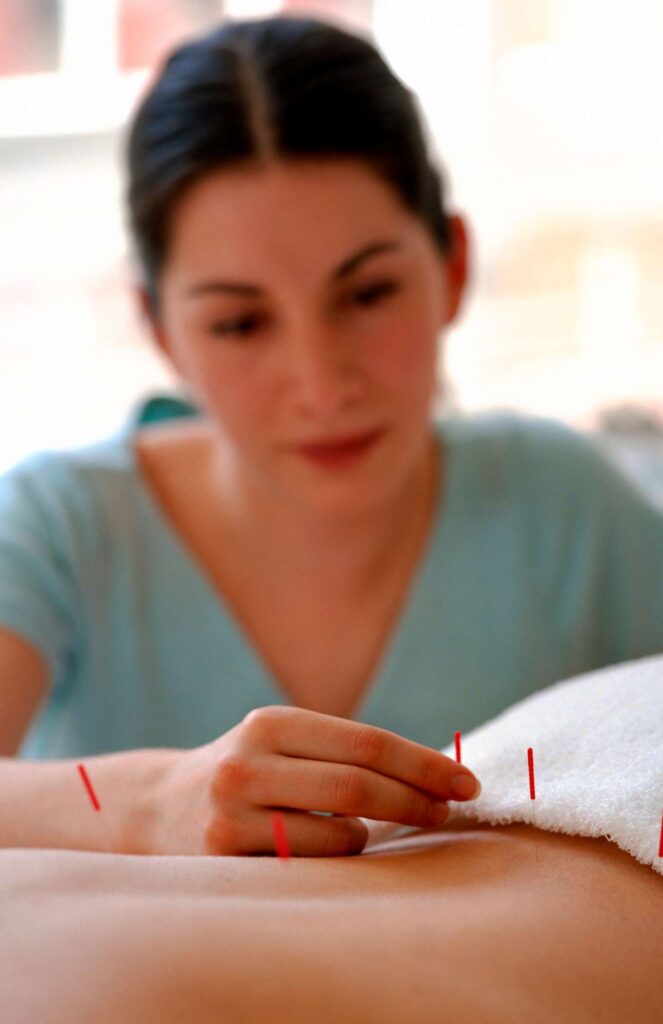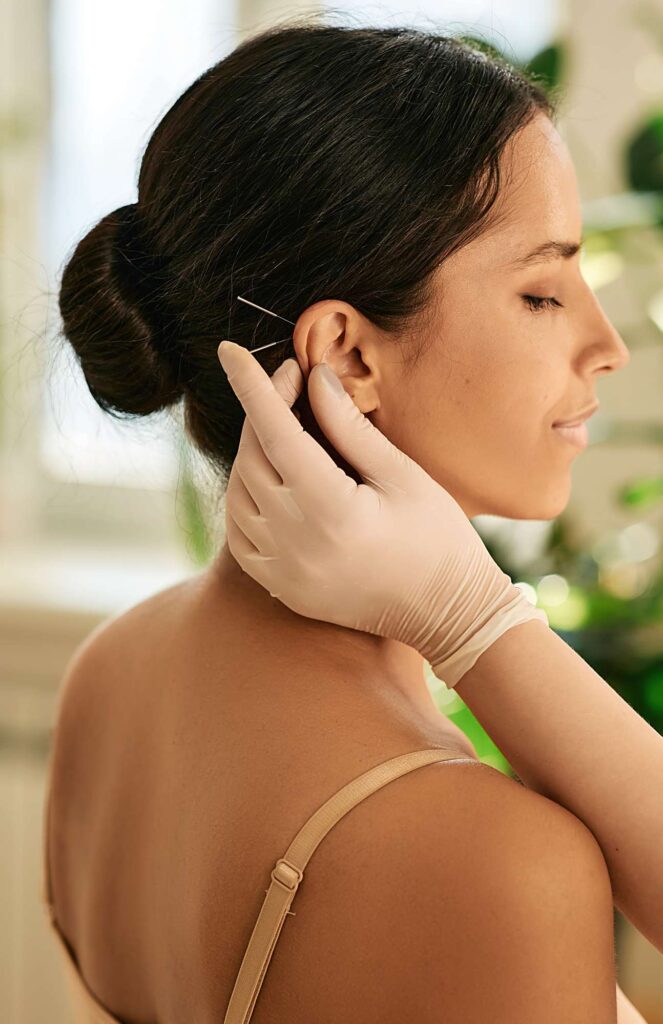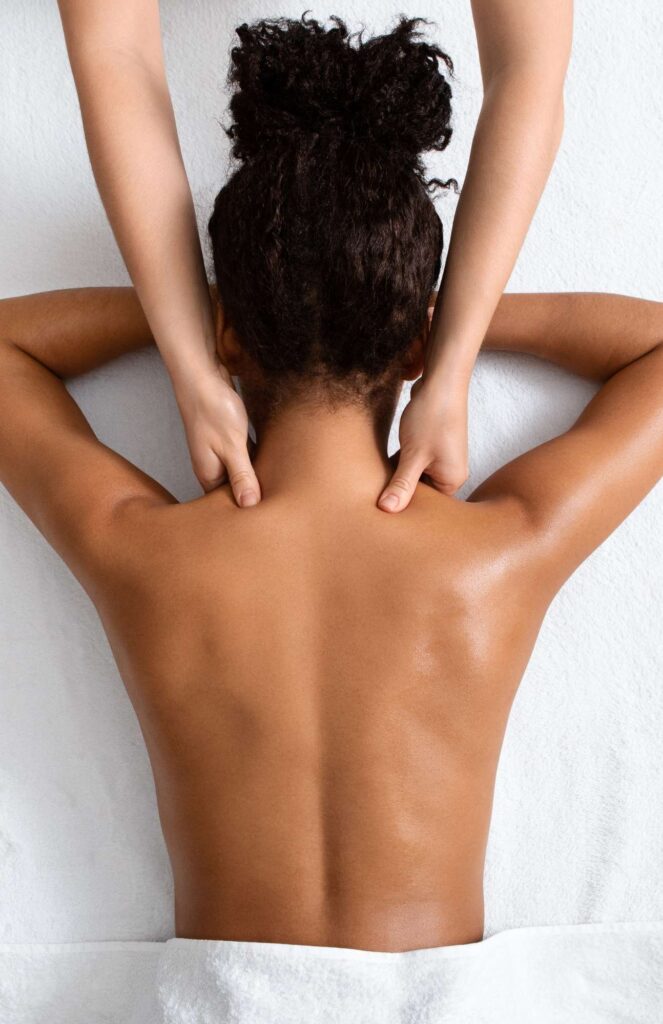Acupuncture vs Massage – Which Therapy is Better for You?
Last Updated on January 17, 2024 by Dr. Tiffany Egan
When it comes to seeking natural and holistic approaches to healing and wellness, acupuncture and massage therapy often come to mind. As a chiropractor, I’ve relied on both of these modalities to help compliment a chiropractic spinal manipulation. Both of these ancient practices have been used for centuries to promote health, relieve pain, and restore balance in the whole body.
In this article, we will look into the world of acupuncture vs massage therapy, exploring their principles, benefits, techniques, and what to expect during a session. By the end, you will have a better understanding of these alternative medicine options and be able to make an informed decision about which one is right for you.
Table of Contents
Understanding the Principles of Acupuncture
Acupuncture, originating from Traditional Chinese Medicine, is based on the belief that the body has a vital life force energy called “Qi” flowing through specific pathways called meridians. According to acupuncture theory, when the flow of Qi is disrupted or blocked, it can lead to imbalances and health issues.
Acupuncture treatments aim to restore the flow of Qi by inserting thin, sterile needles into specific points along the meridians, stimulating the body’s natural healing process.
Exploring the Benefits of Acupuncture Therapy
Acupuncture offers a wide range of benefits for both physical and mental well-being. One of the primary benefits is pain management. Acupuncture has been shown to effectively alleviate chronic pain, such as back pain, neck pain and migraines, nerve pain and arthritis.
It can also help reduce stress and anxiety, improve sleep quality, boost immune function, boost fertility and enhance overall energy levels. Additionally, acupuncture is known to promote relaxation and improve the body’s natural ability to heal itself.

Different Types of Acupuncture Techniques
There are various types of acupuncture techniques practiced worldwide. Traditional Chinese Acupuncture is the most common, where fine needles are inserted into specific points along the meridians. Japanese Acupuncture, on the other hand, utilizes thinner needles and gentler techniques.
Other styles include Korean Acupuncture, which focuses on hand acupuncture, and Auricular Acupuncture, which targets specific points on the ear. There is even a technique where the acupuncture needles stay in for days at a time. Each technique has its own unique approach and benefits, so it’s essential to discuss with a qualified acupuncturist to determine which technique suits your needs.
What to Expect During an Acupuncture Session
During an acupuncture session, you can expect a holistic and personalized approach to your health concerns. Learn more about how to prepare for acupuncture.
The acupuncturist will begin by conducting a thorough assessment, which may include asking about your medical history, lifestyle, and specific symptoms. Based on the evaluation, the acupuncturist will develop a treatment plan tailored to your individual needs.
During the session, you will lie comfortably on a treatment table, and the acupuncturist will gently insert sterilized needles into the designated acupuncture points.
The needles are usually left in place for about 20-30 minutes, during which you may experience a sense of deep relaxation. After the session, you may feel rejuvenated and experience an improvement in your symptoms.
Understanding the Principles of Massage Therapy
Massage therapy, a practice dating back thousands of years, involves the manipulation of soft tissues in the body to promote relaxation, reduce muscle tension, and improve overall well-being. The principles of massage therapy revolve around the belief that touch and pressure applied to parts of the body can stimulate the nervous system, increase blood flow and circulation, and release endorphins, the body’s natural painkillers.
Exploring the Benefits of Massage Therapy
Massage therapy offers numerous benefits for both physical and mental health. One of the primary advantages is stress reduction. Regular massages can help alleviate stress and anxiety, lower blood pressure, and improve mood.
Massage therapy also helps relieve muscle tension and stiffness, improves flexibility and range of motion, and enhances athletic performance. Additionally, it can aid in the management of chronic medical conditions such as fibromyalgia and arthritis by reducing pain and inflammation with little to no side effects.

Different Types of Massage Techniques
There are various massage techniques available, each with its own unique approach and benefits.
Swedish massage, the most common type, involves long, flowing strokes, kneading, and circular movements to promote relaxation and improve circulation.
Deep tissue massage focuses on deeper layers of muscles and connective tissues to release chronic muscle tension and knots. Trigger points may be used to help with extra pain relief.
Sports massage targets athletes and active individuals, using techniques to prevent and treat injuries, enhance performance, and promote recovery.
Other techniques include Thai massage, hot stone massage, and aromatherapy massage. Discussing your specific needs and preferences with a qualified massage therapist will help determine the most suitable technique for you.
What to Expect During a Massage Session
When you arrive for a massage session, you will be greeted by a friendly and professional massage therapist. Before the session begins, the therapist will discuss your goals, any specific areas of concern, and any health conditions or injuries that need to be considered. You will then be asked to undress to your comfort level and lie on a massage table, covered with a sheet or blanket.
Throughout the session, the therapist will use various techniques and pressures to address your needs. Communication is crucial during the massage, so feel free to provide feedback on the pressure and ask for adjustments if necessary. After the session, you will have time to relax and slowly get up from the table, feeling rejuvenated and refreshed.

Acupuncture vs Massage: Similarities and Differences
While acupuncture and massage therapy share the common goal of promoting health and well-being, they differ in their approaches and techniques.
Acupuncture primarily focuses on restoring the flow of Qi and stimulating the body’s healing response through the insertion of acupuncture needles.
Massage therapy, on the other hand, utilizes touch and pressure to manipulate soft tissues and promote relaxation.
Both therapies have proven similar benefits in relieving pain, increasing blood circulation, reducing stress, treating chronic conditions and improving overall health. Choosing between acupuncture and massage depends on your personal preferences, health concerns, and desired outcomes.
Both therapies are highly recommended during pregnancy because it’s a great way to relieve discomfort without the use of pain medications. It also can help with the stress relief, hormonal shifts and balancing the entire body, inside and out.
Choosing the Right Therapy for Your Needs
When deciding between acupuncture vs massage therapy, it’s essential to consider your specific needs and goals.
If you are seeking relief from chronic pain conditions or looking to address imbalances in your body’s flow of energy, acupuncture may be the right choice for you.
On the other hand, if you are looking to reduce tight muscles, promote relaxation, and improve overall well-being, massage therapy may be more suitable. It’s also worth noting that some individuals find that a combination of both therapies provides optimal results.
Ultimately, the decision should be based on your individual preferences and consultation with qualified practitioners in both fields.
Combining Acupuncture AND Massage for Maximum Benefits
For some individuals, combining acupuncture and massage therapy can provide enhanced benefits. The two therapies complement each other by addressing different aspects of the body’s healing processes.
A recent study showed that by combining both Acupuncture and Massage increases the sleep quality of the patients with insomnia.
Another study showed a positive correlation between using acupuncture and massage together for neuropathic pain relief following a spinal cord injury.
Acupuncture can help restore the flow of Qi and address internal imbalances, while massage therapy can release muscle tension and promote relaxation.
Together, they can create a synergistic effect, promoting overall well-being and addressing a wide range of health concerns. If you are interested in combining both therapies, discuss this option with qualified practitioners who can develop a customized treatment plan tailored to your needs.
Finding a Qualified Acupuncture or Massage Therapist
When seeking acupuncture or massage therapy, it’s crucial to find a qualified and experienced practitioner who can provide safe and effective treatments. Look for practitioners who are licensed, certified, or registered in their respective fields. It’s also beneficial to read reviews, ask for recommendations from trusted sources, and inquire about their training and experience.
A good practitioner will listen to your concerns, provide a thorough assessment, and tailor the treatment to your individual needs. Trust and comfort are essential when working with a therapist, so take your time to find the right one for you.
Conclusion: Which Therapy Is Right for You?
In the journey of unlocking the healing powers of acupuncture and massage therapy, the decision of choosing the right therapy ultimately rests in your hands. Take into account your specific needs, preferences, and desired outcomes.
Acupuncture vs massage therapy, both offer numerous benefits for physical and mental well-being, but they differ in their approaches and techniques. Whether you choose acupuncture, massage therapy, or a combination of both, you are embarking on a path towards improved health, relaxation, and overall better quality of life.
Remember to consult with qualified practitioners, communicate your needs, and embrace the healing powers that these ancient therapies can offer.
Unlock the healing powers within you today and experience the benefits of acupuncture or massage therapy. Consult with a qualified practitioner and take the first step towards a healthier, balanced, and rejuvenated life.






